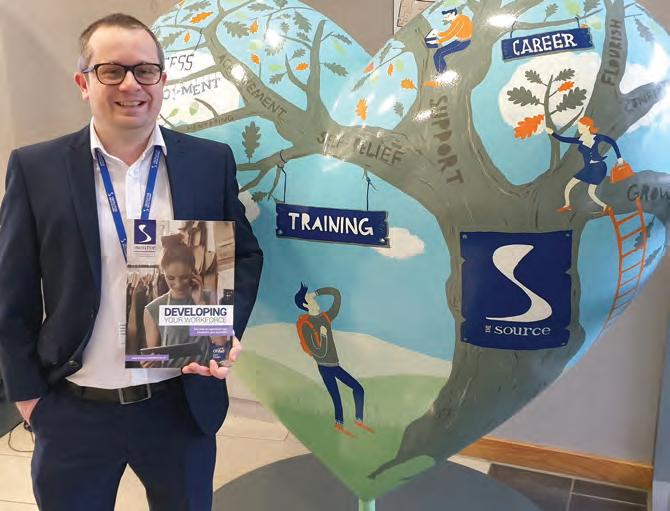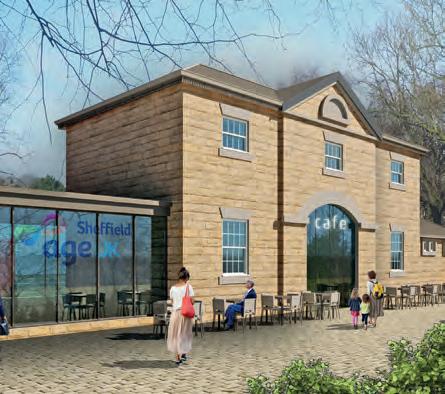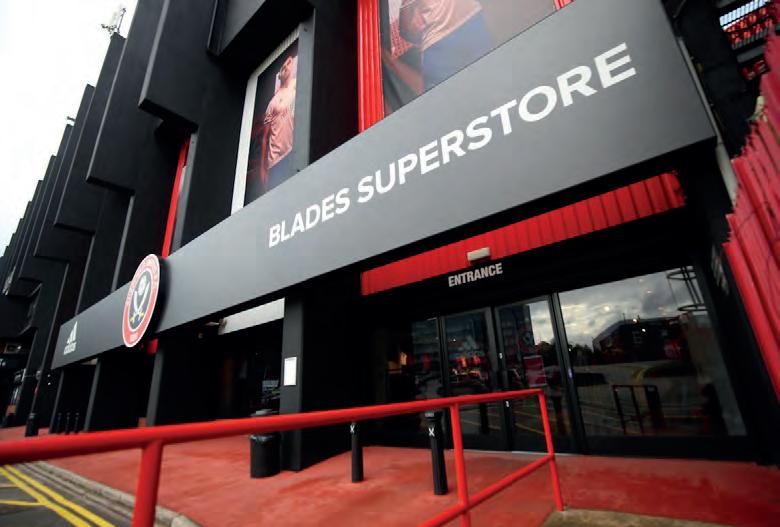
21 minute read
Launchpad

SWEET SISTERS CAKERY
Advertisement
Becki Foster tells unLTD how support from Launchpad helped her turn a ‘little pop-up stall’ into the sweet success of a nationwide postal service
on social media by consumers – every tag is a great win for me! Secondly, I cannot wait to be back ‘on the road’. If everything goes to plan with the lifting of the lockdown, I am especially looking forward to being a regular stall holder at the ever-growing Traxx Market in Chapeltown, Sheffield. Weekly returning customers is my jam!
Tell us about your company?
Sweet Sisters Cakery is an independent bakery based in South Yorkshire supplying the whole UK with baked goodies. We are now running from a little bakery unit to create, produce, cut and pack all of our treats. These are sent though the post with a ten-day shelf life. When we’re allowed, we will be heading back to food festivals and artisan markets around South Yorkshire!
When did you first decide to start up on your own and what inspired you?
Around ten years ago, while working in a bank, I had a huge passion for baking that stemmed back to baking with my Grandma at a young age. With a little planning and preparation, I booked a two-week holiday from work to bake cupcakes and sell them on a local Christmas market. That was it! I was hooked. I then convinced my sister to take a leap and we bought a little shop together! We expanded this little shop and ended up with a deli, butchers, sweet shop and the original little bakery counter. However, the bakery side was my passion and after six years we decided to sell up and drastically change the business.
How has Launchpad helped you?
After the sale of the shop, it was like starting a brand-new business. I had experience of running a business, but Launchpad taught me so much more. Launchpad helped me look at the business with a better perspective on how to make it profitable and sustainable. Launchpad also gave me the knowledge, tools and confidence to adapt during the coronavirus pandemic, turning my little ‘pop-up’ stall into a nationwide postal service!
What are your hopes and aims for the business?
Firstly, I aim to grow my online presence and become more recognised as a brand! I love to see my products being posted
Launchpad advisor Ben Hawley said: “Making the decision to close one business down and start another isn’t easy, but Becki did the right thing by taking the element of the previous business she loved and focusing on it.
“Becki has worked really hard to get the business established and it’s wonderful to follow that journey and see her reaping the rewards.
“Starting and growing a business is not easy and that’s why the Launchpad programme was created. Part-funded by the European Regional Development Fund and our partners means there is no cost to the entrepreneur, so we can get straight to work on turning those dreams into reality.
“Stop dreaming and do it. Contact us for information now on 03330 00 00 39 or email growthhub@ sheffieldcityregion.org.uk.”


SHEFFIELD CITY REGION OF THE FUTURE
In this edition we look ahead to the ‘Sheffield City Region of the Future’ – and what that might mean for established and emerging sectors. We chat to a range of businesses from security and recruitment, training and digital marketing, to media and sport, about the current trends in their sectors and their vision of our region as we emerge from the pandemic … and plan for a bigger, brighter, and better future.

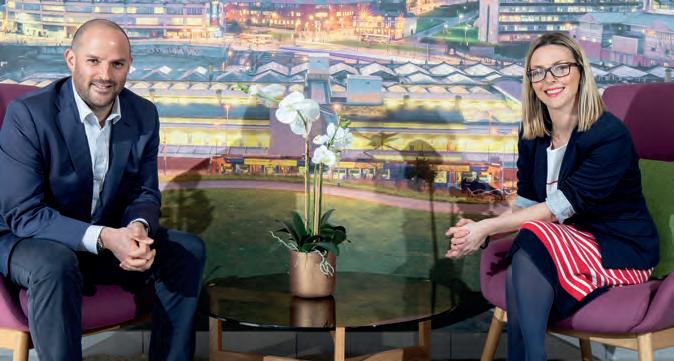
ALEXIS KRACHAI AND LOUISA HARRISONWALKER, EXECUTIVE DIRECTORS, SHEFFIELD CHAMBER OF COMMERCE
What are the stand-out trends you see currently in your industry?
There are three big trends shaping everything we see. Speed, uncertainty and opportunity.
Markets and industries are accelerating at pace. Old business models are dying out. New ones are being invented overnight. Companies that do not innovate are being left behind.
COVID-19 will keep causing uncertainty and will leave deep scars for decades to come. With the right support, our business community will stay agile and well-connected to navigate through this new uncertain world.
There are challenges but also massive opportunities. Businesses that scan the horizon, question everything and focus on innovation will do well. It is these types of businesses that are increasingly joining Sheffield Chamber.
Looking ahead, how do you see these trends developing and what are your predictions for the next opportunities to follow?
The world is getting faster. Changes in industries will only accelerate as technology, automation and Artificial Intelligence become more sophisticated. Businesses and government bodies in our region are going to have to be super smart to make sure our economy is successful. We need to work harder to create the conditions where every business can thrive.
Making sure our region keeps pace means government and business are going to have to join up like never before. Politicians are powerful. Government can be super smart. The same goes for business leaders and businesses. The right mix of ambitious political thinking with savvy business leadership can have a huge and positive influence on how our economy grows in the years to come.
The pandemic provides us with a real opportunity to rip up the rule book. Politicians, business leaders and the voluntary community need to work far more closely together on some practical aims and objectives for our economy. If we do not, our region will be left behind.

In the Sheffield City Region, what are the biggest trends and opportunities we should be looking out for locally?
We need to be honest. Sheffield needs to up its game. For too long, Sheffield’s economy has not been strong enough. That impacts on businesses and communities inside and out of the city.
Look out for the impact that our new city leaders could have in Sheffield. The Council’s new Chief Executive, Kate Josephs, and Council Leader, Bob Johnson, have a real opportunity to drive the city forward. They cannot do everything or solve every problem on their own. Every institution across the city has an important role to play in helping Sheffield achieve its potential. The newly ambitious Sheffield Chamber is ready to play a role in the new Team Sheffield.
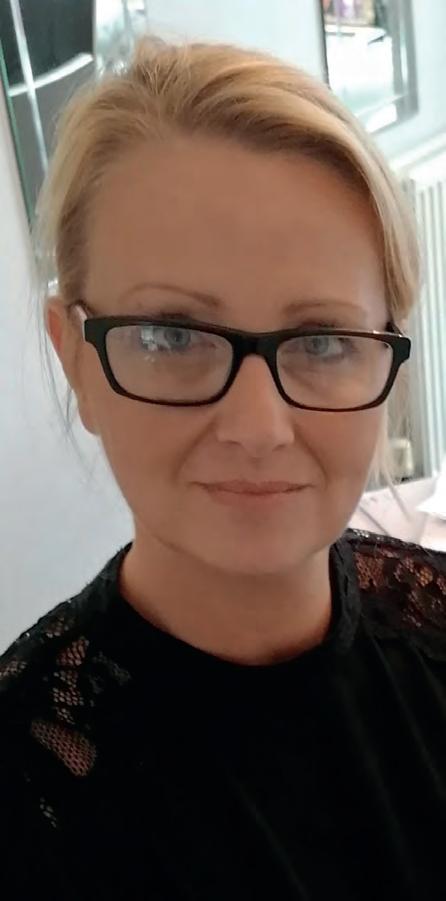

MELINDA SCHOFIELD, STATION DIRECTOR, HALLAM FM AND GHR
What are the stand-out trends you see currently in your industry?
Since March 2020 we have been in regular contact with our consumers to understand changing attitudes and behaviours during the pandemic. This has provided a unique insight into a year of unparalleled challenges – with high levels of uncertainty about the virus and people becoming increasingly frustrated, fatigued, and isolated during the third lockdown compared to the initial lockdown.
As a result, more people are turning to radio and listening for longer – this is evidenced by an increase of 24 per cent more people now tuning in than before the pandemic.
We are a mood-enhancing media and listening to music continues to be a keyway to de-stress. Radio has played a key role in supporting and providing entertainment during the pandemic – we are and continue to be the friend in the room.
We have continued to be a strong and reliable vehicle for our advertisers – commercial radio provides brands with a way to engage with millions of people via a medium they can trust.
Radio provides reach resonance and is an emotional influencer with a power to enhance brand perception at a subconscious level.
Looking ahead, how do you see these trends developing and what are your predictions for the next opportunities to follow?
Audio and connected listening are increasing, and more people are listening to more connective devices – this opens further opportunities for advertisers to reach their audiences, build brand relevance, trust and to further achieve their desired business outcomes.
In the Sheffield City Region, what are the biggest trends and opportunities we should be looking out for locally?
Spending bounce back: consumers are far more positive about spending more now than pre-pandemic, there has been a shift in online buying, and this has changed the important factors affecting purchase decisions.
However, there is a need for local business to be ready to go on the B of the Bang once restrictions allow.
This pent-up desire will see High Street shopping, leisure, and entertainment bounce back as there is a huge appetite for an experience online simply cannot provide.
Couple this with the return of the student population and you have the ingredients required for the economic fightback for our Sheffield City Region.
MARK HANNIGAN, COMMERCIAL DIRECTOR, SHEFFIELD EAGLES
What are the stand-out trends you see currently in your industry?
As a professional sports club based in the self-proclaimed ‘city of sport’, The Sheffield Eagles and the sport of Rugby League have a bright future in the Sheffield City Region (SCR).
Sport in general has stalled somewhat over the last 12 months due to the international COVID-19 pandemic. It was, without doubt, the correct decision to suspend games, but it has also been a very difficult time.
The sport of Rugby League does not have the financial might of other sports meaning times have been particularly tough.
The club has been nomadic for a number of years now following the demolition of Don Valley Stadium back in late 2013. Over the past eight years, the club has played in seven different venues, four in the city and three outside, including Doncaster and Wakefield, but with the commencement of the Community Stadium at The Olympic Legacy Park, we will, finally, have a place to call home.

Looking ahead, how do you see these trends developing and what are your predictions for the next opportunities to follow?
The opportunities on the horizon for the SCR and the business community specifically are vast in the next 12 months.
Later this year will see the 2021 Rugby League World Cup coming with the hosts playing Greece at Bramall Lane and a number of the wheelchair matches, including both semi-finals, being played at the EIS. The Keepmoat Stadium in Doncaster, The Eagles home for 2021, will also play host to group games during the tournament. Not only will this put Sheffield and the SCR in the spotlight, but it also opens a number of commercial opportunities for businesses to get involved.


In the Sheffield City Region, what are the biggest trends and opportunities we should be looking out for locally?
The Sheffield Eagles will certainly be looking at using our new Community Stadium and the World Cup as a way of promoting the SCR business community and to promote the club and sport as a whole during 2021 and beyond.
There has never been a better and more exciting time to get involved with the club and the sport.
After the 1998 Challenge cup final win, the back-to-back Grand final wins of 2012 and 2013, coupled with being the inaugural winners of the 1895 Cup at Wembley Stadium in 2019, we hope this new era of the club and the game in the city of sport can yield more success both on and off the pitch.
The club is working with Sheffield City Council, Sheffield City Trust, our Foundation and the Rugby Football League to appoint a development officer also with some exciting plans to develop the grassroots of the sport in the city and re-engage with the community.
For more information of how to get involved, please get in touch with me at mark.hannigan@ sheffieldeagles.com or call the
club on 0114 398 1998.

JASMINE SAVERY, MARKETING APPRENTICE, HYDRA CREATIVE
What are the stand-out trends you see currently in your industry?
A current stand-out trend in the digital industry is more and more businesses investing in bespoke cloud software. This has become increasingly urgent as the flexible and hybrid home working arrangements we have all had to adapt to over the past year have highlighted the need for effective software solutions to support these changes.
Bespoke software solutions are being used to support businesses with a remote workforce by providing essential functionality such as task monitoring, as well as Customer Relationship Management (CRM) data integration. This means employees no longer need to be in the office to access their internal systems safely and securely, which ensures business continuity.
Looking ahead, how do you see these trends developing and what are your predictions for the next opportunities to follow?
After the journey we’ve all been on over the past 12 months, it is likely more businesses than before will be considering the option of remote working in certain circumstances when it is of benefit to the business, staff and customers. In a recent study the CIPD reported that 40 per cent of employers said they expect more than half of their workforce to work regularly from home 1, which means an increased need for bespoke software and systems.
This shift will also see more organisations integrating digital solutions into their standard business practices, to make way for ‘smarter working’, with software that will make remote teamworking seamless. Following this, we believe we will also see the use of software solutions as part of contingency planning to prepare for potential business disruption. Cloud software can allow businesses access to everything in their workspace within just a few clicks, and from anywhere in the world. It will also enable staff to have a clean transition to remote working, if ever needed in the future.

In the Sheffield City Region, what are the biggest trends and opportunities we should be looking out for locally?
We have seen many manufacturers turning to digital solutions to assist in the production process. For many, we have seen this massively increase both efficiency and productivity. We expect more manufacturers to follow in the near future.
Over the coming months, we will also see a big focus on local SEO, as we have seen a huge increase in customers wanting to shop locally and support small businesses. In 2020, there were big changes in attitudes towards local businesses. Thirty eight per cent of UK consumers said they had shopped more at local businesses during 2020, with 88 per cent of those saying they would be more likely to choose to shop locally in the future.2
Following this trend, we will see an increase in demand for businesses looking to improve their local web presence, and investing in SEO, as businesses will want to make sure they are visible to potential customers online.
1. www.cipd.co.uk/knowledge/ fundamentals/relations/flexibleworking/planning-hyrid-working
2. www.startupsmagazine.co.uk/articlegoogle-finds-we-are-economy-kindness
RAY BYRNE, CEO, WHYY? CHANGE
What are the standout trends you see currently in your industry?
We are seeing the demand for hybrid learning with training providers moving to a more digital approach. Artificial Intelligence (AI) is also emerging in the education sector, with more people now looking to use this technology to automate their marketing material and support their VLE (Virtual Learning Environment). We are also seeing an increase in the demand for digital training in communication and marketing.
Looking ahead, how do you see these trends developing and what are your predications for the next opportunities to follow?
The influx of digital training bodes well with the
In the Sheffield City Region, what are the biggest trends and opportunities we should be looking out for locally?
One of the biggest opportunities is utilising the AEB (Adult Education Budget) funding stream to deliver full and meaningful training to local residents, by local training providers who work collaboratively. Another is exploiting the £3000 apprenticeship incentive that has been recently rolled out by the government. Any business can employ an apprentice – as long as they are 16 years old – and receive the increased incentive payment.
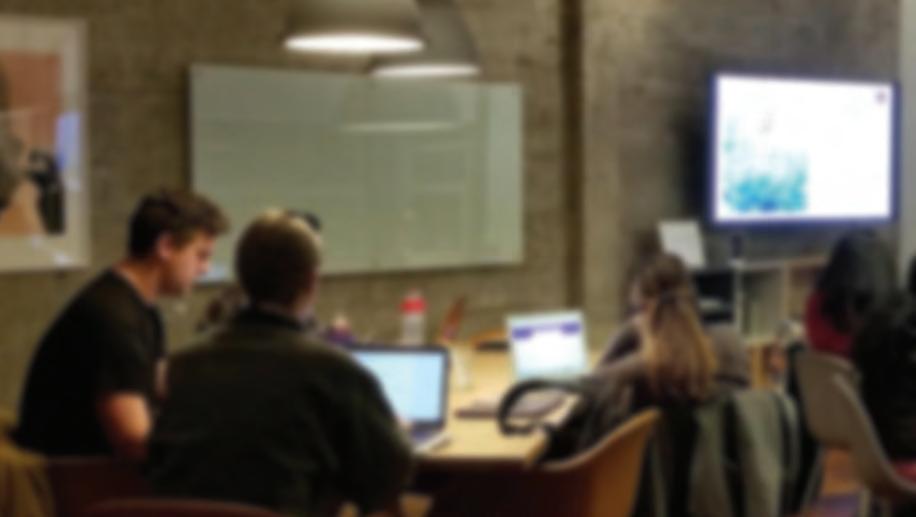

require added assurance protections to be in place, around the clock. However, protecting data has become more challenging as people work in new ways, creating and sharing data across boundaries.
Hackers are also always finding new or more sophisticated ways to access data and compromise systems. The value of data and the impact if something goes wrong will be too much to risk.
MATT BRUCE, CEO, BRUCE & BUTLER LIMITED

What are the stand-out trends you see currently in your industry?
Working in the data protection and cyber security sector, the trends are an increased risk in cyber. This could be due, in part, to organisations taking the decision to move to flexible and home working due to the pandemic to remain operational.
We are living in a time where digital technology is profoundly impacting our lives, from the way we connect with each other to how we interpret and view our world. These trends will only continue to accelerate and amplify due to the way in which the world is becoming more digital (and obsessed with data).
As we become more digital, naturally the exposure to data and cyber risk increases. development of people in the Sheffield City Region, helping to support the digital skills required to keep people connected via Zoom and Teams. Businesses are also looking to develop their agility by expanding their operational excellence knowledge and skills.
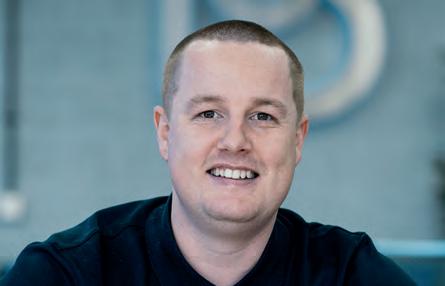
Looking ahead, how do you see these trends developing and what are your predictions for the next opportunities to follow?
With the ever accessible and advancing pace of technological change, particularly with the emergence of Cloud, Big Data, Analytics and Artificial Intelligence, the compliant, secure and ethical processing of personal data will continue to form a top corporate risk in the future and will
In the Sheffield City Region, what are the biggest trends and opportunities we should be looking out for locally?
We have a thriving digital/ tech sector in Sheffield. Ensuring cyber security and data protection/privacy controls and compliance are baked into the development journey from the start will create a great opportunity to ensure the end product remains secure and builds digital trust.
Albion Detection Systems
With decades of experience, we have developed a well respected reputation for supplying fire and security systems to a wide and varied client base, including the NHS, Sheffield Hallam University and the DFEE.
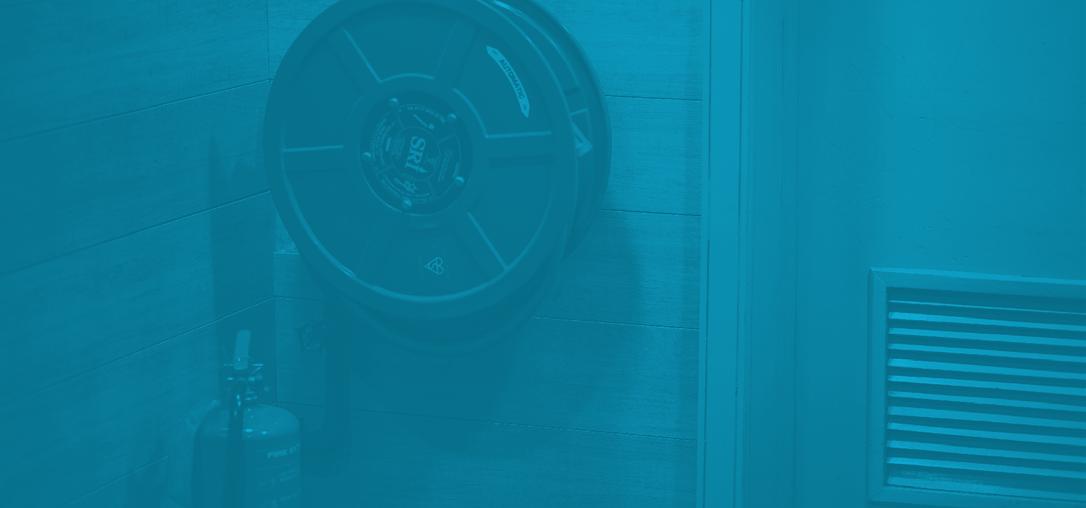
Your complete security is our priority and we will endeavour to ensure your property, people and assets are meticulously protected at all times by tailoring your security system to meet your exact needs.
Whether you have multiple large premises or a single shop, we can install detection systems to cover almost any space to ensure your complete security.


Fire Protection Security Systems Assisted Living Emergency Lighting

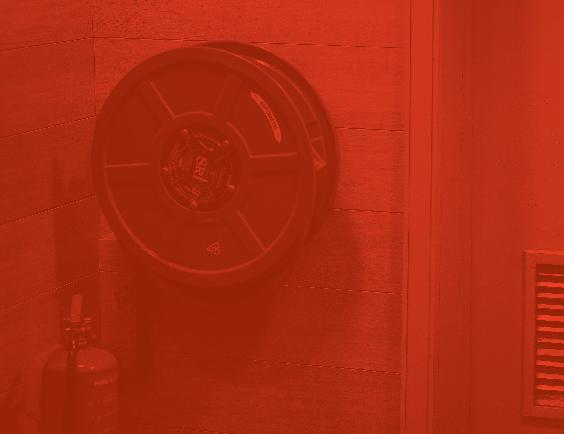
To completely secure your property against the risk of fire, your premises requires methods of fire detection, protection and suppression. There are many forms of security system that can help ensure your premises is protected against intruders or unwanted visitors.
With an aging population, assisted living is becoming a more popular option of care for those that need extra support and in later life, both personal and medical.
Should a fire break out in an occupied building the main lighting supply is often the first thing to fail, which means that those inside need help to guide them to the nearest exit.
CONTACT US TODAY FOR A FREE QUOTATION OR SITE VISIT


MARK SLATTER, DIRECTOR, ALBION DETECTION SYSTEMS
What are the stand-out trends you see currently in your industry?
Creating a COVID-secure environment has been something our clients have been working at for some time. Lockdowns have seen us continue to work within different environments at not just getting them safe for people in the short term, but able to operate at a greater capacity as social distancing regulations are relaxed. We work with clients from hospitals to pubs, so we have been able to offer advice that employs techniques used in one sector, to help future-proof another.
Looking ahead, how do you see these trends developing and what are your predictions for the next opportunities to follow?
When restrictions were last relaxed, measures involved spacing tables or desks further apart and erecting screens. Longer term, Internet of things (IoT) technology will enable businesses to monitor their working environments more closely and employ responsive methods that take automatic action to keep variables like air quality at safe levels. We offer a solution to monitor data such as CO levels, CO2 levels, humidity and temperature and this data can be used to observe spikes in these and other factors. As we see more intelligent and accessible solutions develop, smarter systems will become commonplace across more diverse industries, employing technology that is used today in a hospital or secure environment in your local village pub.
It’s solutions like these that will help keep a workplace safe and thrive as people return to venues. Customers are keen to get back to their favourite places, but the memory of the pandemic will stay with them for a long time and customers will vote with their feet if they don’t feel safe.
Beyond that, the government has a responsibility to ensure environments are safe for us all. I wouldn’t be surprised to see changes such as these becoming legislative over the coming years.

In the Sheffield City Region, what are the biggest trends and opportunities we should be looking out for locally?
In Sheffield, I think the decentralisation enforced by lockdowns will play a big part in how the city evolves. People will return to the office, but I think time will be split with home working, with an out-oftown leisure economy seeing a sustained popularity.
In city centres, I wouldn’t be shocked to see large retail units that are currently empty become residential as city centre living continues to be popular, particularly for younger generations. This creates its own safety issues, as fire regulations in the shadow of Grenfell are a much bigger concern to tenants and buyers, who are becoming more aware of factors that affect not just their safety, but the saleability of the investments.
ROB SHAW, MANAGING DIRECTOR, GLU RECRUIT
What are the stand-out trends you see currently in your industry?
An increased confidence in employers hiring, but a more cautious feeling in candidates changing jobs. A typical trend in the recruitment industry is to have a higher candidate-to-client ratio, with lots of candidates applying for a lower number of jobs. However, during the most recent lockdown we have found it to be quite the opposite.
Sheffield City Region businesses are still recruiting, but the candidate market is more cautious to move at present. This could be for a number of factors – feeling more secure in their current role, or, if they are on furlough not wanting to move until this comes to an end.
Looking ahead, how do you see these trends developing and what are your predictions for the next opportunities to follow?
As the economy starts to open up again, we should see an increase in confidence from the candidate market. As furlough comes to an end and employees get to know where they stand with their current employers, this could be the catalyst for them to decide where their future lies.

In the Sheffield City Region, what are the biggest trends and opportunities we should be looking out for locally?
SCR businesses are starting to plan their pandemic exit strategies, and this includes recruitment. We have found that a lot of businesses have used the unexpected down time to re-strategise, and this has resulted in identifying new areas which they need to recruit for.
As confidence improves in the candidate job market, local businesses should start to see plenty of activity as they advertise their new vacancies.



